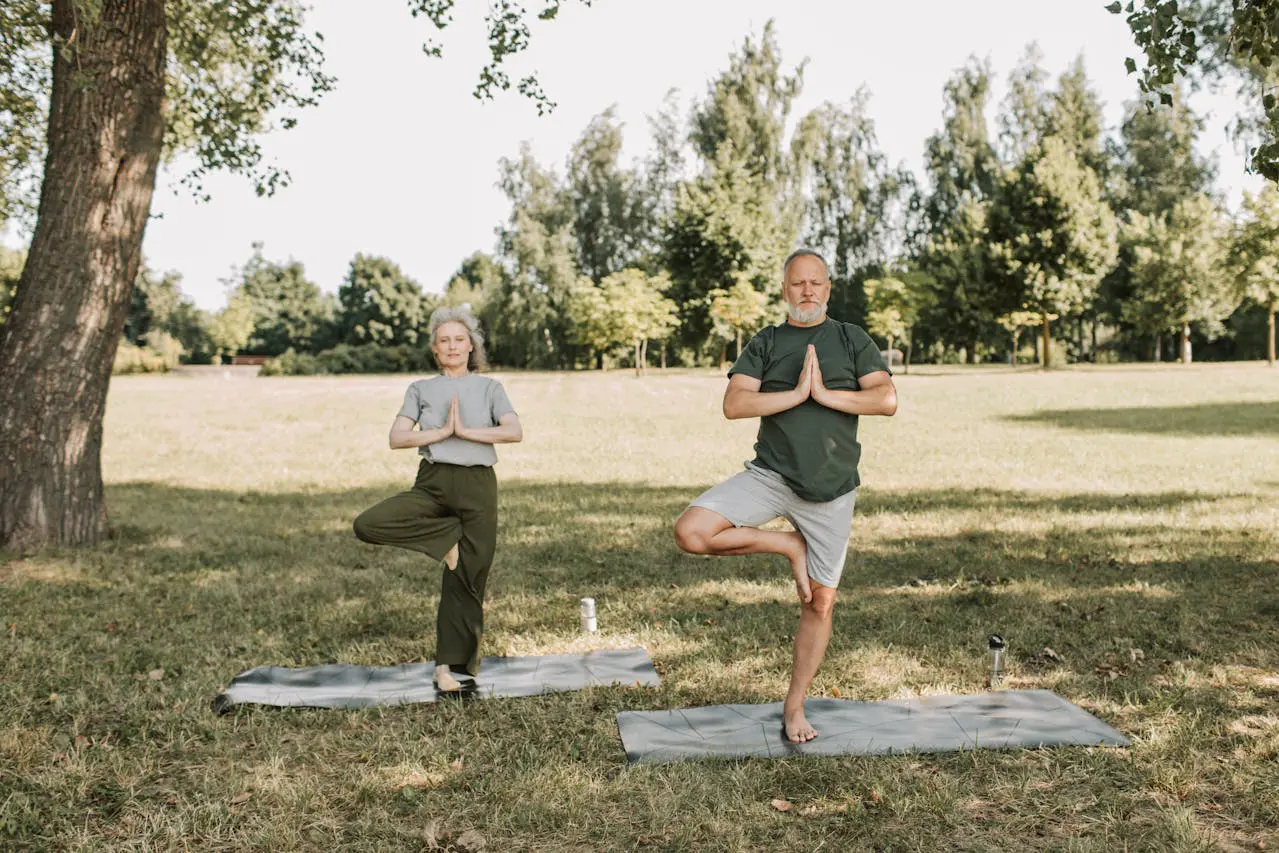You set your alarm, commute, answer emails, sit in meetings, grab a late lunch, scroll a little too long, and collapse into bed. Rinse, repeat. The routine “works,” but it doesn’t feel like it’s working for you. If that sounds familiar, you’re not alone – and you’re not stuck.
A growing body of research suggests that building a stronger sense of purpose in daily life isn’t just nice to have – it’s a measurable health habit linked with living longer, staying sharper, and feeling better.
Below you’ll find the health benefits of purpose, the strongest studies behind the claims (with links), and practical, evidence-informed ways to cultivate purpose – without quitting your job or moving to a monastery.
What Do Researchers Mean by “Purpose”?
When scientists talk about “purpose in life”, they don’t mean a rigid life plan or some grand mission everyone must discover. In health and psychology research, purpose is usually defined as:
- A central life aim – something bigger than yourself that provides direction.
- A sense that your daily activities matter – that what you do makes a difference, even in small ways.
- An organizing principle – a lens through which you make choices, set goals, and invest effort.
Think of it less as a destination and more as a compass: it points you toward actions that feel aligned and meaningful, even when life gets stressful or uncertain.
Purpose vs. Happiness
It’s important to note that purpose isn’t the same thing as happiness or momentary pleasure. Happiness is often about how we feel in the moment, while purpose is about why we keep going.
Researchers describe it as a more “eudaimonic” form of well-being—rooted in meaning, growth, and contribution – rather than fleeting joy.
Everyday Examples of Purpose
Purpose can look very different depending on the person and stage of life. It doesn’t have to be dramatic or world-changing:
- For a parent: Raising children in a loving environment, teaching values, and helping them thrive.
- For a professional: Using skills to mentor younger colleagues, build a product that solves problems, or serve clients with integrity.
- For a student: Working toward a degree that will enable them to contribute to society in a chosen field.
- For a retiree: Volunteering at a community center, gardening for joy and sustainability, or preserving family traditions.
- For an artist: Expressing emotions through painting or music, and creating works that inspire or comfort others.
The Health Benefits of Purpose (with studies)
1) Longevity and Lower Mortality Risk
In a cohort of 6,985 U.S. adults over age 50 (Health and Retirement Study), those with a stronger sense of life purpose had a significantly lower risk of all-cause mortality, even after adjusting for economic status, health, and other factors. JAMA Network
Why it matters: This is not a small convenience sample; it’s a nationally representative longitudinal dataset often used in aging research.
2) Better Preventive Health Behaviors
A widely cited study in PNAS found that people with greater purpose were more likely to get preventive screenings (e.g., cholesterol tests, colonoscopies) and spent fewer nights hospitalized. Purpose seems to nudge practical, health-protective choices.
3) Brain Health: Lower Risk for Cognitive Impairment and Dementia
New, large-scale evidence shows purpose predicts lower risk and later onset of cognitive impairment (including MCI and dementia) over up to 15 years of follow-up, even when genetics (APOE-ε4), depression, and education are considered.
This complements earlier work from the Rush Memory and Aging Project, which linked higher purpose to reduced risk of Alzheimer’s disease (AD) and mild cognitive impairment (MCI). PMC
4) Mental Health: Lower Depression and Anxiety
A meta-analysis of 99 samples (N = 66,468) reported that greater purpose was moderately associated with lower depression (r ≈ −.49) and lower anxiety (r ≈ −.36). While correlation isn’t causation, the consistency across samples is notable. Wiley
5) Cardiometabolic and Daily Functioning Signals
ID 74388454 ©Marek Uliasz | Dreamstime.com
Japan-based cohorts highlight ikigai (a related construct) as protective. The Ohsaki Study found that people without a sense of ikigai had higher all-cause mortality, largely from cardiovascular and external causes (not cancer).
A 2022 cohort connected higher ikigai with lower cardiovascular mortality among unemployed adults, suggesting benefits across socioeconomic contexts. BMJ Open
6) Possible Pathways: Behavior, Stress, Biology
Reviews suggest purpose may protect health via:
- Behavioral pathways (more movement, better sleep, adherence, preventive care). (PNAS cited above)
- Stress-buffering and psychological resilience (lower chronic stress load).
- Biological pathways (knock-on effects on inflammation, cardiovascular function).
An additional angle: health literacy is positively associated with purpose and life satisfaction, hinting that learning to navigate health decisions can bolster purpose and, in turn, health. Nature
How to Build a Sense of Purpose (Evidence-Informed, Practical)
You don’t need a grand mission. Purpose often grows from small, repeated, values-aligned actions. Below are strategies supported by research and clinical practice frameworks.
1) Start with Values, Not “Passions”
Why: Passions can feel elusive; values are available now. Many effective therapies (e.g., Acceptance and Commitment Therapy) build well-being by aligning daily actions with personally chosen values (family, learning, service, creativity).
How: Write 3–5 core values. For each, list one 15-minute action you can take this week (call a relative; tutor a student online; practice an instrument). Consistent behavior builds the feeling of purpose.
2) Use the “Three Lanes” Model: Self, Others, Growth
Purpose tends to emerge at the intersection of:
- Self-care/health (sleep, movement, nutrition)
- Contribution (helping a person, team, or cause)
- Growth (mastering a skill, learning)
Pick one micro-action per lane daily. Over time, these become identity-confirming habits. The preventive-care link suggests that purpose and healthy routines reinforce each other. PNAS, cited above
3) Build Micro-Commitments (and Keep Them)
Research on purpose and preventive behaviors indicates that follow-through matters. Choose tiny, scheduled commitments (e.g., 10-minute walk + 2 push notifications turned off + 1 meaningful text sent). Track them briefly in a notes app. The point is consistency, not perfection.
4) Practice “Pro-Social Reps”
Helping others – at work or outside – predicts stronger purpose and better mental health. Volunteer, mentor, or add a helping task to your workday (share knowledge; improve a process; praise someone’s effort).
This aligns with evidence that purpose relates to lower depression/anxiety and with the ikigai literature, which emphasizes contribution. PubMed
5) Strengthen Health Literacy (It Can Lift Purpose)
A 2022 study linked health literacy with higher purpose in life and life satisfaction, implying that getting better at navigating health decisions may feed your sense of agency and purpose.
Try: learn how your screenings work, read patient-friendly guides, and prepare questions before appointments. Nature
6) Calibrate Work for Meaning (Without Quitting)
Job crafting – tweaking tasks, relationships, and narratives – can increase purpose.
- Tasks: trade or redesign 1–2 tasks to use your strengths.
- Relationships: add 10 minutes of mentoring or peer support weekly.
- Narrative: link your role to outcomes that matter (customer success, community wellbeing).
Even small adjustments can reduce “aimless routine” and reinforce your why.
7) Rituals That Anchor Purpose Daily
Borrow from ikigai: begin the day by naming one person you’ll help and one skill you’ll practice.
End the day with a 2-minute reflection: What moved me? What did I move? Over weeks, these rituals shift attention toward meaning.
8) When You Need a Boost: Therapeutic/Program Options
- Meaning-centered interventions (originally developed in oncology) and other structured programs have shown benefits for well-being and meaning in randomized studies. apjon.org
- Digital, short-term meaning/purpose interventions have improved perceived meaning and life satisfaction versus waitlist in trials. (Evidence base emerging.) apjon.org
Reality check: The gold standard (long, multi-arm RCTs with hard health endpoints) is still limited. But observational and mechanistic evidence is strong and growing, and newer trials are promising.
Putting It Together: A 7-Day “Purpose Sprint”
Day 1 – Values & Vision (20 min). List top 5 values. Write a 2-sentence “why I’m here” statement.
Day 2 – Health Anchor (15 min). Schedule one preventive/health action (screening, walk, sleep window).
Day 3 – Pro-Social Act (10 min). Help one person in a concrete way.
Day 4 – Skill Rep (15 min). Practice one skill tied to growth at work or home.
Day 5 – Micro Job-Craft (15 min). Improve or swap one task to better use your strengths.
Day 6 – Learn for Agency (15 min). Read a patient-friendly explainer on a health topic affecting you; note one question to ask a clinician.
Day 7 – Reflection & Plan (15 min). Journal: What felt most meaningful? What will I repeat next week?
Repeat weekly; keep actions small and sustainable.
FAQs Readers Often Ask
Isn’t purpose a luxury?
Not according to data. Benefits show up across age groups and socioeconomic contexts, including unemployed adults in Japan (ikigai-CVD link). BMJ Open from above
Can purpose delay brain aging if I have a genetic risk?
A 2025 U.S. cohort suggests yes: higher purpose was linked with lower risk and later onset of cognitive impairment even after adjusting for APOE-ε4. PubMed
What if I’m burned out?
Start with micro-actions in your control (sleep, sunlight walk, one helpful act). Small wins re-establish agency, which supports purpose and mental health over time. (See meta-analysis on depression/anxiety links.) PubMed
Limitations & What the Science Can’t Say (Yet)
Many studies are observational; they show association, not guaranteed causation. Researchers do adjust for baseline health and socioeconomic factors, but unmeasured variables may play a role. JAMA Network from above
Intervention trials that raise purpose and directly track hard health outcomes (e.g., mortality) are still relatively rare; however, emerging RCTs in meaning-centered therapy and digital programs are encouraging. apjon.org cited above
Measurement tools vary (e.g., Ryff Scales; ikigai questionnaires), which can make comparisons tricky across studies. PubMed cited above
Disclaimers & Caution
This article is educational, not medical advice. If you’re experiencing depression, anxiety, burnout, or cognitive concerns, consult a qualified clinician.
A stronger sense of purpose is not a cure-all. It’s one piece of a broader health picture that includes sleep, movement, nutrition, medical care, community, and safety.
If “purpose work” brings up distressing thoughts, seek support from a licensed mental health professional. Evidence-based therapies can help you clarify values and build purpose safely and sustainably.
Final word
You don’t need a brand-new life to feel more alive. Start with one small, values-aligned action today, and repeat it tomorrow. Over time, those actions become a story – and that story can strengthen both your health and your why.
Photo sources (Except Dreamstime): 1, 2, 3, 4, 5









